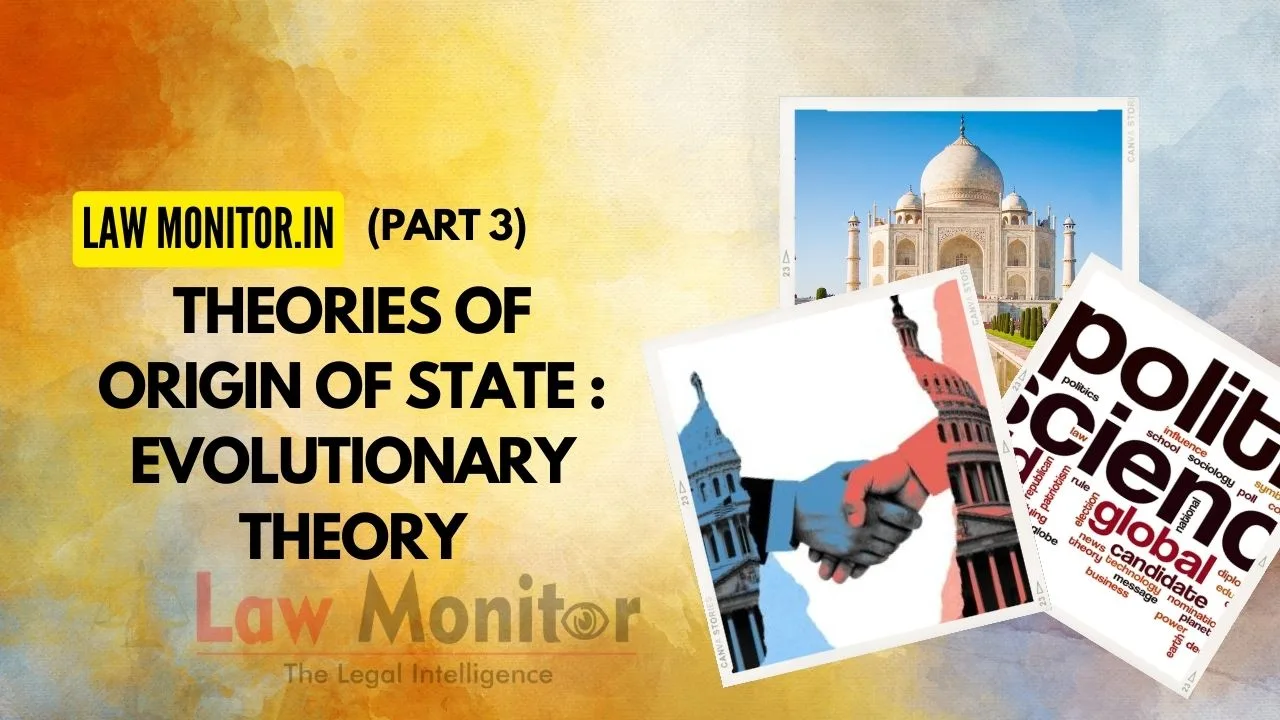Evolutionary theory explores the development and adaptation of species over time through the process of natural selection.
It suggests that characteristics promoting survival and reproduction are passed on, leading to the gradual evolution of species.
This Evolutionary theory is also known as sociological or the correct theory of the origin of the state. It indicates the evolution and development that has taken place with time.
1. Kinship:
- Evolutionary Perspective:
- Emphasizes the importance of family ties for the survival of genetic material.
- Kin selection suggests that behaviors promoting the well-being of close relatives can enhance the passing on of shared genes.
- Application:
- Evolutionary theory helps explain the development of altruistic behaviors within families, as it can increase the likelihood of shared genetic success.
2. Religion:
- Evolutionary Perspective:
- Suggests that religious beliefs and practices may have evolved as adaptive traits.
- Social cohesion, group identity, and shared morality within religious communities can enhance survival and reproduction.
- Application:
- Evolutionary theory helps to understand why societies with strong religious ties might have been more successful in cooperating and surviving.
3. Industry:
- Evolutionary Perspective:
- Views the development of tool use and technological innovation as adaptive traits.
- The ability to create and use tools enhances survival and resource acquisition.
- Application:
- Explains the evolution of human intelligence and the capacity for technological advancement as advantageous for survival in diverse environments.
4. War:
- Evolutionary Perspective:
- Examines the role of conflict in human evolution, suggesting that competition for resources and mates has influenced the development of aggressive behaviors.
- Group cooperation in conflicts may have enhanced the survival chances of communities.
- Application:
- Helps understand the evolutionary roots of human conflict, competition, and the development of social structures for group defense.
Evolutionary theory provides insights into various aspects of human behavior and societal structures, interpreting them as adaptive responses to environmental challenges over time. From kinship to religion, industry, and war, the theory offers a lens through which we can understand the evolutionary roots of diverse human traits and behaviors.
Significance:
- Understanding State Formation:
- The evolutionary theory provides insights into how the state developed organically as a response to the changing needs of human societies.
- Social Order and Stability:
- The state, according to this theory, arises as a means to establish social order and stability in increasingly complex and populous societies.
- Role of Economic Factors:
- Recognizes the impact of economic factors, such as the Agricultural Revolution, on the development of social structures and governance.
- Formation of Legal Systems:
- The theory highlights the role of the state in establishing legal systems, which are crucial for the resolution of conflicts and the maintenance of social cohesion.
- Adaptation to Changing Circumstances:
- The evolutionary perspective emphasizes the adaptive nature of the state, evolving in response to the challenges and opportunities presented by changing social, economic, and technological conditions.
In summary, the evolutionary theory of the origin of the state provides a historical context for the development of governance structures and emphasizes the adaptive nature of the state in response to the evolving needs of human societies.
Read Back Notes:
Read Next Notes: NATURE & ROLE OF THE STATE



